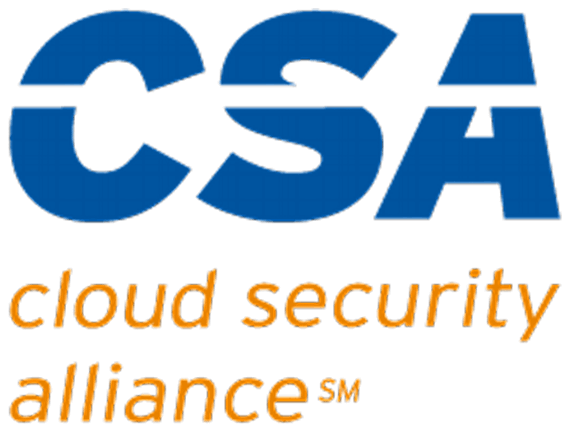When most small business owners think about cyberattacks, they picture stolen data or a few hours of downtime. But the reality is far more costly—and far more dangerous. A single cyber incident can do lasting damage to your business operations, finances, and reputation. In fact, according to recent industry research, the average cost of a data breach for small and mid-sized businesses now exceeds $200,000—enough to put many companies out of business entirely.

The threat is even more significant for small businesses that lack dedicated IT staff. Hackers often see smaller companies as easy targets—underprotected and underprepared. But while the risks are serious, protecting your business doesn’t have to be expensive or complicated. In this article, we’ll break down the hidden costs of cyberattacks and share practical, affordable steps small businesses can take today to protect themselves.
The True Cost of a Cyberattack
Cyberattacks are expensive—and not just in the ways you might expect. Let’s look at the direct and indirect costs your business could face in the wake of a breach or security incident.
1. Downtime and Lost Productivity
One of the most immediate effects of a cyberattack is operational downtime. When your systems are locked by ransomware, or your network is compromised, your team can’t access the tools and data they need to work. This translates into hours, days, or even weeks of lost productivity—and revenue.
2. Data Loss and Recovery Costs
Recovering from a cyberattack often involves restoring data from backups—if you have them. If not, the cost of recovering or rebuilding lost data can be steep. And some data, like customer payment information or proprietary documents, may be permanently unrecoverable.
3. Legal and Compliance Penalties
Businesses that store personal or financial information must comply with HIPAA, PCI-DSS, or California’s CCPA regulations. A breach can trigger audits, investigations, and hefty fines. Even if you’re not in a regulated industry, data breaches can expose you to lawsuits and liability.
4. Damage to Your Reputation
Trust is hard to earn and easy to lose. A breach can cause customers to question whether they should continue doing business with you. Once word spreads—through the press, social media, or word of mouth—your reputation could take years to recover.
5. Customer Churn
Customers affected by a data breach may choose to take their business elsewhere, especially if they feel their information wasn’t adequately protected or if you were slow to respond to the incident.
6. Incident Response and Investigation
After an attack, you’ll need professional help to investigate the breach, determine how it happened, and shore up your defenses. These services can be costly—and are often needed on an urgent, emergency basis.
7. Cyber Insurance Gaps
While cyber insurance can help offset some costs, many policies include strict requirements. If you haven’t implemented basic cybersecurity measures, your claim could be denied—or not cover all your damages.
Affordable, Practical Cybersecurity Measures
Small businesses often assume that cybersecurity is something only large enterprises can afford. But there are many effective, budget-friendly ways to improve your security posture—without breaking the bank.
1. Implement Multi-Factor Authentication (MFA)
Adding a second layer of protection to logins significantly reduces the risk of compromised accounts—even if passwords are stolen. MFA is easy to deploy and available through most major platforms.
2. Keep Software and Systems Updated
Outdated software is one of the most common ways attackers gain access. Set up automatic updates for all operating systems, applications, and devices, including routers and firewalls.
3. Use a Business-Grade Antivirus and Endpoint Protection
Free antivirus tools may be fine for personal use, but business systems need more robust protection. Invest in endpoint security software that includes real-time threat detection and response capabilities.
4. Back Up Data Regularly—And Test Your Backups
Daily backups are a must, but they’re only useful if they work when you need them. Set up both local and cloud-based backups, and test recovery procedures regularly.
5. Train Your Employees on Cybersecurity Basics
Human error is still the #1 cause of most breaches. Teach your team to recognize phishing emails, avoid unsafe downloads, and use secure passwords. Consider a formal cybersecurity awareness training program.
6. Enforce Least Privilege Access
Limit user access to only the systems and data necessary for their job roles. This reduces the potential damage if an account is compromised.
7. Secure Your Wi-Fi and Network
Use strong encryption (WPA3), change default router credentials, and segment your business network from guest or IoT devices.
8. Conduct Regular Security Assessments
A periodic checkup of your security environment can uncover hidden vulnerabilities. Many MSPs offer these assessments as part of their service plans—or for a small fee.
Why DIY Isn’t Enough
While the above tips can significantly reduce risk, cybersecurity is not a set-it-and-forget-it process. Threats evolve constantly, and new vulnerabilities are discovered daily. For small business owners juggling sales, operations, and customer service, staying on top of cybersecurity can quickly fall to the bottom of the priority list.
That’s where working with a Managed Service Provider (MSP) like Datacate can make all the difference.
The Datacate Advantage: Peace of Mind Through Proactive Protection
At Datacate, we understand the unique cybersecurity challenges that small businesses face. Our managed IT services are designed to take the burden off your shoulders—so you can focus on growing your business, not fighting off cyber criminals.
With Datacate as your partner, you get:
- Proactive threat monitoring and response to stop attacks before they do damage
- Managed endpoint security with business-grade antivirus and ransomware protection
- Secure data backups and disaster recovery to keep your data safe and accessible
- Ongoing employee security training to empower your staff as your first line of defense
- Compliance support for HIPAA, PCI, CCPA, and other regulatory requirements
- 24/7 helpdesk and IT support from a local team that knows your business
Our solutions are affordable, scalable, and tailored to your unique needs. Whether you’re a five-person firm or a growing team of fifty, we’ll help you create a secure, resilient IT environment that supports your success—not holds it back.
Final Thoughts
Cyberattacks are more than just an IT problem—they’re a business risk. And for small businesses, the stakes couldn’t be higher. But with the right protections in place, you can safeguard your data, protect your reputation, and maintain business continuity—no matter what comes your way.
You don’t have to face these challenges alone. Partner with Datacate, and let us help you build a smarter, safer IT foundation for your business.
Ready to protect your business?
Let’s talk about how Datacate can secure your systems, data, and peace of mind. Contact us today.




